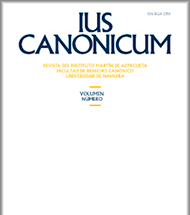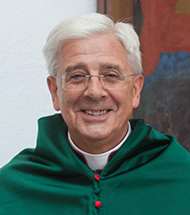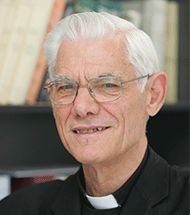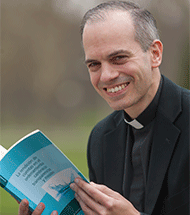Expert analyses the content of the documents of the Synodal Assemblies on the family since 2014
Bernardo J. Montes publishes 'Evolution and revolution of the synods on the family 2014-2016'.
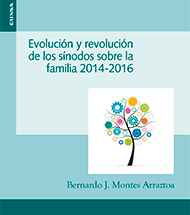
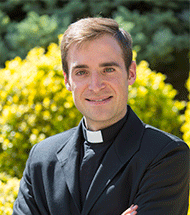
Bernardo J. Montes (DerCan'15, PhD'18), former student of the School of Canon Law and Adjunct Professor of Ecclesiastical Law of the State and Marriage Law of the School of Law, has published Evolución y revolución de los sínodos sobre la familia 2014-2016. This is a monograph presenting the chronological pathway of the Synodal Assemblies on the family of 2014 and 2015.
The document faithfully analyzes the content of the synodal documents according to their order of appearance and the interventions of the Fathers (both in the classroom and in the different Circoli minori), until crystallizing in the Apostolic Exhortation Amoris Laetitia.
Professor Montes points out that "the goal of this publication is to make a making off of what was the Synod of the Family, in its two synodal assemblies: 2014 and 2015, and which has truly marked a before and after in the way of conducting the Synods of Bishops (as we have seen its influence later, for example in the Synod of Youth: Young People, Faith and Vocational Discernment); it offers a making off of the entire process of elaboration of the 2016 Apostolic Exhortation Amoris Laetitia, from its origin to its promulgation by Pope Francis, and the changes (from beginning to end) that this Synod produced in the process of declaration of marital nullity."
As he explains, "of particular interest is the analysis of the methodological evolution of the Synod of Bishops, which was the undeniable precedent of the Apostolic Constitution Episcopalis communio and of the Instruction on the Celebration of Synodal Assemblies and the activity of the General administrative office of the Synod of Bishops".
The book also offers appendices with comparative tables on the content of the synodal documents that help the reader to appreciate the evolution from one document to another in relation to the family, cultural and sociological issues raised in the synodal assemblies.
The book is addressed both to a public specialized in the subject of Canon Law, ecclesiastical organization, matrimonial and procedural matters, and also and above all to the general public, to all those interested in the contents that were dealt with during the Synod, such as migration, violence, poverty, the elderly, women and children, marriage preparation: maturity and affectivity, discernment for priestly vocations in the family, crises and ruptures in married life, welcoming people distanced from ecclesial activity by various factors, difficult situations (separated, divorced, divorced and civilly remarried), de facto unions, marriage annulment, pastoral care of these people, etc.
Bernardo J. Montes is graduate in Law from the Universidad de los Andes, Chile, (2009). programs of study of licentiate degree at Canon Law at the Pontifical University of the Holy Cross (Rome) and at the University of Navarra. PhD in Canon Law from the University of Navarra (2018). He is currently Adjunct Professor of Ecclesiastical Law of the State and Canon Marriage Law at the School of Law of the University of Navarra.


